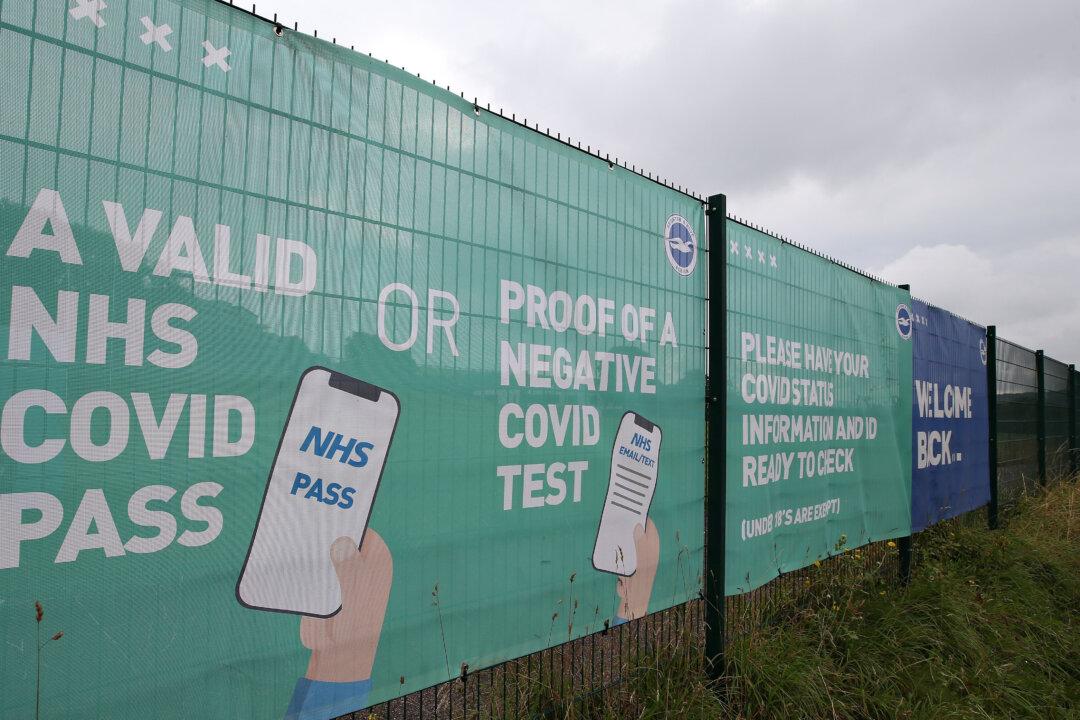No evidence suggests vaccine passports have increased the uptake of the COVID-19 vaccines in Scotland, a government adviser said on Sunday.
Stephen Reicher, a psychology professor who’s in the Scottish government’s COVID-19 Advisory Group and the UK government’s Scientific Advisory Group for Emergencies, said the increase rate of CCP (Chinese Communist Party) virus vaccinations in Scotland has been “exactly the same as in England,” where there are no mandatory domestic vaccine passports.





